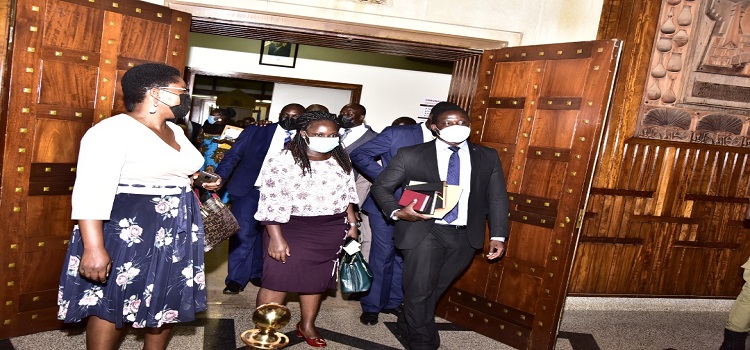
A Bill that will allow for the development and implementation of the East Africa Crude Oil Pipeline Project (EACOP) is before the House.
The East African Crude Oil Pipeline (Special Provisions) Bill, 2021 presented by the Minister of State for Mineral Development, Hon. Sidronious Okasai seeks to facilitate the full implementation of Uganda’s obligations under the Intergovernmental Agreement and the Host Government Agreement.
The object of the Bill is to enable some provisions of the Intergovernmental Agreement signed between Uganda and Tanzania as well as the Host Government Agreement signed between Uganda and the East African Crude Oil Pipeline Company Limited to allow for progress of the project.
The Bill will cater for some matters agreed upon in the agreements that are necessary for lawful implementation of the project in Uganda but are not covered by or are inconsistent with the existing law.
Some of the laws that will regulate the East Africa Crude Oil Pipeline Project include the Petroleum (Refining, Conversion, Transmission and Midstream Storage) Act, 2013 as well as laws on environment, land, tax, insurance and immigration.
“The Governments of Tanzania and Uganda granted the project a number of incentives to ensure the pipeline is low cost and the tariffs fixed. These incentives can only be put into effect by the enactment of enabling legislation,” the Minister said.
The new law will provide for the tariff regime applicable to the project during the different phases of operation including the construction and operation period.
The new bill will also enable Government and the Uganda National Oil Company to pay the transportation tariff in kind, ensure that the project obtains required authorisations in a timely manner as well as grant and protect land rights of the project including land acquisition.
The Bill when passed into law will define the local content regime applicable to the EACOP and ensure that Ugandan citizens and enterprises benefit from the project. It will also guarantee third party access to the pipeline and define the tariff to be paid.
“This is important in ensuring that crude oil from any future discoveries can easily be commercialised and is therefore an incentive to encourage further exploration in the country,” the Minister said.
The Committee on Environment and Natural Resources to will process the bill and later present a report to the House.
